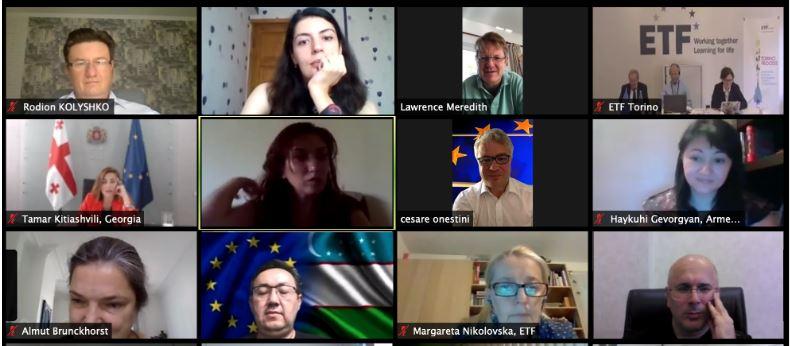
Global crisis offers chances to reshape education and training
European Training Foundation regional online Torino Process conference for Eastern Partnership
Participants in the ETF's Eastern Partnership 5th round Torino Process conference discussed the global pandemic crisis which has brought education and training to the top of political agendas, putting the need for flexible, adaptable labour markets in sharp focus.
The two-day conference - originally scheduled to be held in Minsk, Belarus in March, but now streaming online for around 85 participants - is an opportunity to review and discuss the findings of the national Torino Process reports in Armenia, Azerbaijan, Belarus, Georgia, Moldova and Ukraine. Observers from Central Asia are also taking part.
Opening the conference, Vassilis Maragos, Head of Unit, EU DG NEAR (Neighbourhood and Enlargement Negotiations), said that the COVID crisis had been "the key unforeseen issue" of the year, forcing Torino Process participants to look at how "human capital and human resources will address the issues raised" during the pandemic.
"In this context it is extremely important to see the links between what we are doing in terms of investment in people with overall education reforms," Mr. Maragos added.
"The EU is ready to partner and cooperate with all the key stakeholders in the process [of education and training reform] - but the main tasks ahead are with the national stakeholders and governments."
Picking up on his comments, ETF Director, Cesare Onestini, said the pandemic had accelerated processes that had already been put into motion, including widening attention to vocational training as "part of the general challenge of raising educational standards" and a greater focus on expert assessment of national reform proposals.
"There is a growing awareness as a result of pandemic that education and training are in need of reform and investment," Mr. Onestini said.
"Teaching and learning has moved to being a frontline area of the response to the pandemic to respond and upgrade the capacity of each country to meet the needs of citizens for training and retraining."
Armenian delegate, Armen Avagyan noted that among the key challenges revealed by the pandemic was the difficulty of making training and labour market forecasts.
"Everything starts from skills forecasts," he said. "The COVID-19 crisis shows that not every forecast is relevant when everything changes almost overnight; no systems are ready for this."
A participant from Moldova added: "In Moldova we are already dancing to this tune - you need to keep alive, flexible and with the capacity to learn. Things you learned yesterday are no longer relevant!"
Did you like this article? If you would like to be notified when new content like this is published, subscribe to receive our email alerts.